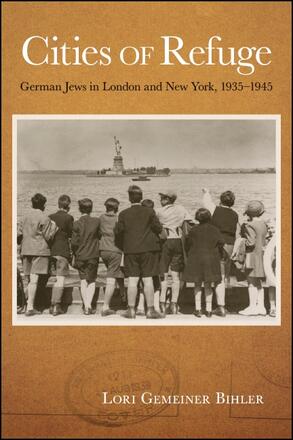
Cities of Refuge
German Jews in London and New York, 1935-1945
Alternative formats available from:
Contrasts the experiences of German Jewish refugees from the Holocaust who fled to London and New York City.
Description
In the years following Hitler's rise to power, German Jews faced increasingly restrictive antisemitic laws, and many responded by fleeing to more tolerant countries. Cities of Refuge compares the experiences of Jewish refugees who immigrated to London and New York City by analyzing letters, diaries, newspapers, organizational documents, and oral histories. Lori Gemeiner Bihler examines institutions, neighborhoods, employment, language use, name changes, dress, family dynamics, and domestic life in these two cities to determine why immigrants in London adopted local customs more quickly than those in New York City, yet identified less as British than their counterparts in the United States did as American. By highlighting a disparity between integration and identity formation, Bihler challenges traditional theories of assimilation and provides a new framework for the study of refugees and migration.
Lori Gemeiner Bihler is Assistant Professor of History at Framingham State University.
Reviews
"…[a] fascinating study … Given the ongoing influx of immigration, Bihler's study has obvious implications for understanding present and future patterns of ethnic identity and retention. " — American Jewish History
"Cities of Refuge not only demonstrates the importance of comparative history but also highlights the need for serious scholarship among American immigration historians and American Jewish historians to study in depth German Jewish refugees. " — H-Net Reviews (H-TGS)
"This is the first comprehensive comparative study of German Jewish immigration during the period of National Socialism. Comparing German Jews who fled their homeland and resettled in London with those who resettled in New York City, Bihler carefully documents the distinct structural conditions each group encountered and consequently the divergent lives the two immigrant groups led. Bihler's numerous significant insights would be unattainable without her intellectual commitment to rigorous comparative study. " — Judith M. Gerson, coeditor of Sociology Confronts the Holocaust: Memories and Identities in Jewish Diasporas